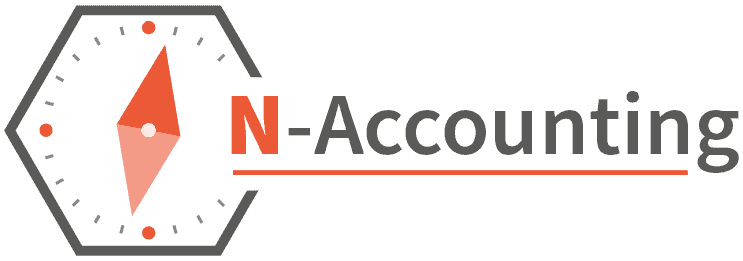Contents
Why aren’t expenses as important for saving tax
Making the most of your allowances and the basic rate band
Early tax planning and professional advice
Want to cut your taxes this year? In this guide we show you how small business owners can cut their tax bills for 2024-25. We get down to business – from exemptions to income planning – so you can save money without the hassle.
Key Takeaways
Saving tax for small business owners is more about structuring income and utilising various allowances than just expenses.
Using personal allowances, income tax bands and capital allowances can cut tax bills, with pension contributions and other tax reliefs coming into play for tax planning.
Early tax planning and professional advice is key for small business owners to tie tax saving strategies to financial goals and tax rules.
Before you continue reading
Our clients enjoy these things as standard:
- Three working hour response time for queries
- Fixed monthly payments and any ad hoc fees pre-agreed
- Full UK based team working 9-5 in the office
- All-inclusive tax planning and software support
- Free representation in the event of an enquiry
Why aren’t expenses as important for saving tax?
Many think that focusing on expenses is the way to save the most tax. But in reality the tax savings from expenses are minimal. The real key to big tax savings is structuring your income and utilising the various allowances.
Instead of focusing on tax deductions from business expenses for corporation tax, consider income structuring. This is the most tax efficient way to reduce your corporation tax and overall tax.
Making the most of your allowances and the basic rate band
In this section we will look at the various allowances. We will also create a plan for you to tailor to your personal financial goals.
Using your income tax bands
A tax band is a threshold. It’s a specific income level at which you pay tax. It’s a common myth that all your income is taxed at the higher rate once you cross a tax band. In reality only the income within that band is taxed at the higher rate.
So you’re never worse off tax wise by earning more. So as a business owner you need to learn how to use your income tax bands.
Personal Allowance
One of the most well known tax savings is the personal allowance. Currently £12,570 for 2024-25 this allowance means you can earn up to this amount tax free.
This tax free allowance applies to your total taxable income and is a key part of your tax planning. Using it fully can reduce your overall tax bill and increase your net income.
Basic Rate Band
The basic rate is part of your personal tax strategy. It’s not a tax free opportunity but most people can’t survive on tax free allowances only.
With planning you can ensure tax is paid at the basic rate which is 20% for income, 8.75% for dividends and 10% or 18% for capital gains. Even if you don’t need the money now it can make sense to take it at the basic rate. Otherwise you may get ‘trapped’ later and have to earn it at a higher rate due to personal needs.
Higher and Additional Bands
From a tax planning perspective it’s not generally desirable to take income out at the higher or additional rates. This is mainly because of the higher tax rates and loss of benefits.
For example the higher rate is 40% for income, 33.75% for dividends and 20% or 24% for capital gains. The additional rate is even steeper with 45% for income, 39.35% for dividends and 20% or 24% for capital gains. You could also lose your child benefit at £60k, your personal allowance at £100k of income and your pension allowances at £260k. So effective planning is key to avoid these higher and additional bands.
National Insurance Loopholes
National Insurance (NI) can be a big part of your overall tax bill if you’re self employed or in a partnership. But the good news is there are NI allowances that work independently of the tax allowances above.
For example NI is calculated per employment so it can still be worth taking a salary even if you have other income to use up your personal allowance as it could save you dividend tax. If used effectively these NIC loopholes can reduce your tax bill significantly.
Dividend Allowance
For a director in 2024-25 the most tax efficient way of being paid is a low salary and regular dividend payments. Directors’ salaries are subject to Income Tax and Class 1 National Insurance, dividends are taxed at lower rates and are NIC free.
Dividends paid from post Corporation Tax company profits aren’t a business expense for tax purposes. So a combination of salary and dividend payments will generally produce a lower overall tax bill than taking the full payment through salary.
Capital Gains Allowances

Using capital gains allowances is another key part of tax planning. These allowances can be used to reduce tax liabilities when selling assets.
Business Asset Disposal Relief
Business owners who have owned their business for at least 2 years may qualify for a 10% Capital Gains Tax rate on all gains from qualifying assets, known as Business Asset Disposal Relief.
To qualify the business must be a ‘personal company’ and the individual must have held at least 5% of both shares and voting rights for at least 2 years before the sale. This relief can be a great way to build personal wealth without paying higher rates of tax.
Other Allowances
In addition to the above capital allowances there are other allowances to be used for tax savings.
Pension Contributions
Company pension contributions are a tax deductible expense so reduce the Corporation Tax bill.
In fact employer pension contributions are a legitimate business expense and can be deducted from profits to reduce corporation tax liability. So strategic pension contributions can give corporation tax relief and reduce your overall tax bill.
Trading Allowance
The trading allowance in the UK gives you a tax free allowance on casual or miscellaneous income up to £1,000 per tax year.
This allowance can be used in addition to the personal allowance to increase your tax savings. Note if self employment or miscellaneous income exceeds the trading allowance threshold you will need to register for Self Assessment and file a tax return.
Redundancy Pay
In the UK redundancy payments up to £30,000 are tax free so a tax relief opportunity if you lose your job.
In addition to the tax free redundancy pay, costs incurred by an employer for retraining or counselling redundant employees are generally tax free in the UK. Another one to consider when planning your tax.
Enterprise Investment Scheme/SEED Enterprise Investment Scheme
UK investors in the Enterprise Investment Scheme (EIS) can claim Income Tax relief for shares issued in the tax year 2023-24 or in certain cases the following year.
Relief allows investors to claim
30% relief on eligible amounts invested in shares issued within the tax year
Up to a maximum of £2 million per tax year
and the excess over £1 million being limited to investments in knowledge intensive companies.
This can be a great opportunity for small business owners to invest in their own or other companies for business purposes.
Perks of Being a Director

Tax Benefits of Electric Company Vehicles
UK businesses may be eligible for a government plug in grant which reduces the purchase price of certain low emission vehicles like motorcycles, vans and taxis.
Also the Benefit-in-Kind (BIK) tax for electric company vehicles is 2% from 2023 to 2025 so a low tax cost for businesses with electric cars. So investing in electric company vehicles is a tax efficient option.
Home Office Deduction
With the rise of homeworking the home office deduction is a tax saver. Home office deductions may be available to small business owners who do substantial duties for their main business from home.
HMRC offer a flat rate claim of £6 per week for home expenses without receipts. But if your business expenses are more than this you can claim a larger amount by apportioning home expenses between business and personal use.
Trivial Benefits
Trivial benefits are small perks or gifts given to employees that are worth £50 or less. They are usually given as a gesture of goodwill and are tax free if they meet certain conditions.
For example:
Worth less than £50
Not in cash form
Not a reward for work or performance
Not part of a salary sacrifice scheme
These trivial benefits can add up to big tax savings over time.
Early Tax Planning and Professional Advice

Tax planning at the start of the tax year gives you a full understanding of the tax savings and how they fit in with your financial goals.
Also professional tax advisors with knowledge of tax legislation can give you bespoke advice to reduce your tax liability and ensure compliance. So it’s not just about planning early but also seeking expert advice for the best tax planning.
Summary
As we’ve seen in this article there are many ways small business owners can reduce their tax bill in 2024-25. From maximising allowances and using the basic rate band to exploiting director perks and other allowances, tax planning can save you a lot.
Remember the key to good tax planning is to know the allowances and exemptions and align them with your financial goals. Plan early and seek professional advice to make sure your plan is compliant and works.
Frequently Asked Questions
What is the most tax-efficient method for a director to pay themselves in the tax year 2024-25?
The best way for a director to pay themselves is a low salary and regular dividends. This minimises tax liability and gives income.
What is the trading allowance in the UK?
The trading allowance is £1,000 per tax year in the UK.
What benefits do electric company vehicles offer?
Electric company vehicles save businesses money, cheaper purchase prices and lower Benefit-in-Kind (BIK) tax rates make them a cost effective option for companies.
How does the home office deduction work?
Small business owners can claim a flat rate of £6 per week for home expenses without receipts from HMRC. If your business expenses are more than this you can claim a larger amount by apportioning home expenses between business and personal use.
What are trivial benefits and how can they lead to tax savings?
Trivial benefits are small perks or gifts worth £50 or less. They are tax free if they meet certain conditions.


